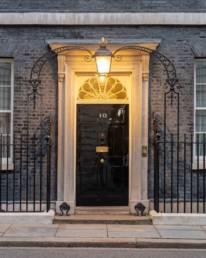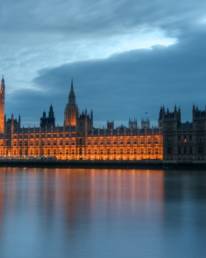Whether you're a parent looking for a savings account for your new baby, or a grandparent wanting to set up a savings plan for your grandchildren, putting money away for children is a great way to teach them about money, as well as giving them a boost towards the start their adult life.
The choices you make will depend on who you’re saving for, why you’re saving, and how much money you can commit to putting away. With that in mind, here are some of the most common options when saving and investing for children.
Parents, grandparents and other relatives can contribute to a Junior ISA on top of their own £20,000 ISA limit
Children’s savings accounts in a bank or building society
The minimum investment for this option is usually £1 but can vary considerably. The savings account normally needs to be opened and operated by a parent or guardian (not the grandparent).
Interest rates tend to vary, but regular (monthly) savings plans usually give a higher rate than one-off deposits. The same may apply if the parent or guardian has a qualifying account with the same provider as the child. It’s worth knowing that if parents place cash gifts in the child’s account and the interest earned exceeds £100 per tax year, the parents may incur tax on this amount.
Junior Cash ISAs
There’s usually a £1 minimum investment here too but, once again, this does vary according to the provider and account. The maximum investment in a Junior ISA (or JISA) is £9,000 per annum (2022-23). Parents, grandparents and other relatives can contribute to a JISA on top of their own £20,000 ISA limit.
Interest rates are often higher for a Junior Cash ISA than you’d find for an adult ISA, but can vary considerably. It’s therefore worth shopping around from time to time, to ensure you’re getting the best rate – but do bear in mind that a child can have only one JISA at a time.
Like a traditional children’s savings account, a Junior Cash ISA needs to be opened and looked after by a parent or guardian, ie. not the grandparent. The savings are free from Income Tax, and the child can withdraw their cash after the age of 18, when the money remains tax free.
Junior Stocks and Shares ISA
A Junior Stocks & Shares ISA requires a minimum monthly investment of at least £25 and growth is dependent on the funds you select. These can be set as a high risk or low risk, depending on your preferences. Funds are free from Income Tax and Capital Gains Tax, but the account needs to be opened and looked after by a parent or guardian.
For more information about ISAs, see 5 ways to make tax-efficient investments
A bare trust, or a designated account, is suitable for investing larger sums upwards of £50,000
NS&I Premium Bond
Premium bonds, from the state-backed National Savings & Investments (NS&I), are still a popular option for grandparents, parents and other adult friends and relations wanting to give a present to a new baby or child.
You can buy any whole-pound amount of bonds between £25 and £50,000. No interest is earned, and the value of the bond remains static for as long as it’s held. But two lucky premium bond holders will win £1 million every month, with many other prizes from £25 upwards. No tax is due on winnings, and the parent or guardian must look after the account until the child turns 16.
Trust funds
A bare trust, or a designated account, is suitable for investing larger sums for an individual: a typical initial outlay is over £50,000.
One or more trustees are legally responsible for protecting and investing funds appropriately for the trust’s ‘beneficiaries’ (the people who will benefit from it – in this case, children). Growth will depend on the investment funds chosen, and access will be dependent on the terms of the trust – or can be at the trustees’ discretion. The trust will incur setup fees and probably other fees as additional advice is needed. As with most of the options outlined here, seeking independent financial advice is strongly recommended.
For more information about trusts for children, see The pros and cons of setting up a trust for your kids
Grandparents and other relatives Often want to contribute with regular monthly amounts or one-off gifts
Child pensions
These can be set up for as little as £20 per month, up to a maximum of £2,880 (net) per year. Like adult pensions, a child’s pension is eligible for 20% tax relief, so if a parent or grandparent pays £2,880 each year, the government will top it up to £3,600.
Like all pensions, it cannot be accessed until at least age 57, by which time it will hopefully have matured to a sizeable sum.
Life Landscaping® from Amber River
Setting up a saving plan and investing in your child’s future is a great thing to do, and often, grandparents and other relatives would like to contribute with regular monthly amounts or one-off gifts.
At Amber River, we can advise you on a savings and investment strategy for your children or grandchildren to run alongside your own financial plan, setting your family on the right path towards a bright future.
Get in touch
To speak to one of our team, arrange an appointment or find out more, call 0800 915 0000, or alternatively use our contact form here.
Disclaimer
The information within this article was correct at the time of publishing, but laws and tax rules are subject to change. Your circumstances and where you live in the UK may also have an impact on your tax treatment.
Related Posts
26 November 2025
Read More

26 March 2025
Read More

9 November 2024
Read More

30 October 2024
Read More

12 May 2024
Read More


